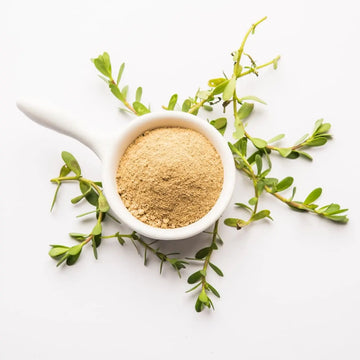Contents
- Morning practices for energy and cleansing
- Movement and meditation
- Abhyanga: Oiling the body
- Meal rituals according to the doshas
- Evening recommendations for relaxation and regeneration
- Customizing rituals to your needs
- Benefits of Ayurvedic practices
Morning practices for energy and cleansing
Ayurveda recommends starting your day early, preferably between 4 and 6 a.m., a time called brahma muhurta . This is a special time before sunrise, when the subtle energies of the doshas dominate vata . Eastern sages believed that brahma muhurta was a time of deep awareness, ideal for spiritual practices such as meditation, reflection, and prayer. By getting up at this time, we have a chance to harmonize our body and mind with the rhythms of nature.
Start with simple rituals: drinking a glass of warm water with lemon helps cleanse the body of toxins and stimulates the digestive fire (agni). A moment for deep breathing or a short meditation will bring inner peace and a feeling of gratitude for the new day. It is also a good time to cleanse the senses - gently wash your face, clean your tongue with a tongue cleaner (copper scraper) and use neti (nasal rinse) will prepare your body and mind for a healthy, energetic day.
Movement and meditation
Daily movement is key to maintaining health and balance. Morning exercise helps to energize the body, improves circulation and strengthens the digestive fire (agni) . Gentle forms of exercise such as yoga, stretching or brisk walking will perfectly introduce energy into the body without overloading the nervous system. For people with a constitution Vata Calm, grounding exercises are particularly beneficial as they stabilize energy and bring a sense of security.
After exercising, it’s a good idea to spend a few minutes meditating or practicing breathing. Ayurveda says that just as the body needs cleansing, the mind needs regular “cleaning” of excess thoughts. Even a few minutes of focusing on your breath can calm inner tensions and help you face the challenges of the day with greater peace and clarity.
Abhyanga: body oiling
One of the most valued practices in Ayurveda is abhyanga , or daily oil massage. It is a practice that not only cares for the skin, but also nourishes the body, promotes circulation and calms the nervous system. Warm oil massage, preferably with the addition of Ayurvedic herbs, helps reduce excess doshas vata , which often manifests itself as stress, dry skin and anxiety.
Abhyanga it is also a moment of closeness with your body – an opportunity to feel gratitude for how it supports us every day. Daily practice of oil massage supports the body’s cleansing processes, improves the quality of sleep and helps maintain vitality. To perform abhyanga, simply gently warm the chosen oil (according to your dominant dosha) and massage the body, performing long movements on the limbs and circular movements in the joints and abdomen.

Meal rituals according to the doshas
Eating meals that are in line with our dosha constitution is crucial to our health. For people with a dominant dosha Vata Warm, nourishing meals such as soups, cereals and cooked vegetables are recommended, which support grounding and stability. Pitta should avoid too spicy and acidic foods, preferring light salads, raw vegetables and cool drinks that help cool the body. Kapha in turn, it responds best to light, dry meals and stimulating spices that help stimulate digestion and counteract stagnation.
| Dosha | Recommended products |
|---|---|
| Vata | Warm, moist, nutritious foods: cooked vegetables (sweet potatoes, carrots, pumpkin), soups, grains (basmati, oatmeal), nuts, seeds (after soaking), ghee, oils (sesame), fruits (mango, bananas, soaked dates) |
| Pitta | Cool, slightly dry foods: salads, raw vegetables, grains (quinoa, oatmeal), fruits (melons, pears, apples), cooling herbs (mint, cilantro), ghee, coconut oil, legumes (lentils, chickpeas) |
| Kapha | Light, dry foods: raw vegetables (broccoli, Brussels sprouts, cabbage), cereals (millet, barley, buckwheat), fruits (berries, pomegranates, dried figs), stimulating spices (ginger, garlic, pepper), ginger tea, ghee, sesame, honey (unheated) |
Evening recommendations for relaxation and regeneration
Ending the day in a harmonious and peaceful way is crucial to prepare the body and mind for a restorative sleep. Dinner should be light and eaten a few hours before bed – warm, easily digestible meals such as soup or stewed vegetables are preferred. Practice Abhyanga – oil massage can be a great way to relax before bed, especially a foot massage with warm oil, which helps calm your thoughts and supports deep, restorative sleep.
Use triphala at night supports digestive and detoxification processes , and avoiding intense mental activity after 9 p.m. prevents sleep disturbances. Instead, focus on quiet, relaxing activities such as reading, listening to music, or meditation.
Adapting rituals to individual needs
Each of us has a different dosha constitution – Vata , pitta , kapha – that’s why the rituals we introduce should be tailored to our unique needs. Vata needs more grounding rituals, such as warm food and gentle exercise, pitta should focus on cooling and kapha requires more stimulation and movement.
You don’t have to implement all the practices at once – just start with the ones that inspire you the most and expand on them. Remember, Ayurveda is a process that adapts to you and your needs.
Benefits of Ayurvedic Rituals
Regular practice of Ayurvedic rituals benefits not only the body but also the mind. It helps reduce stress, improves the quality of sleep, supports digestion and detoxification of the body. Thanks to these simple habits, we gain more energy and peace, which translates into a better well-being every day.



